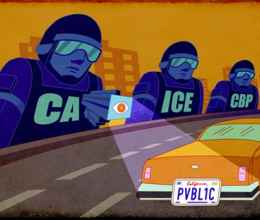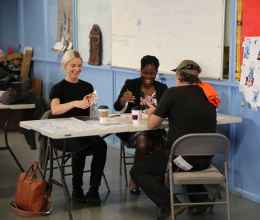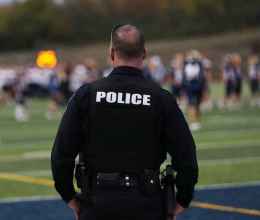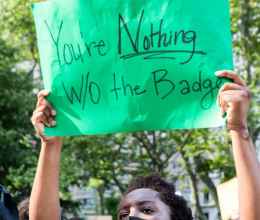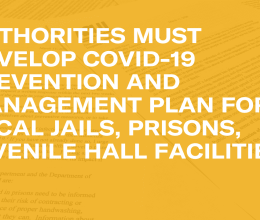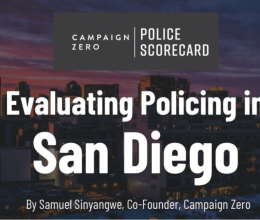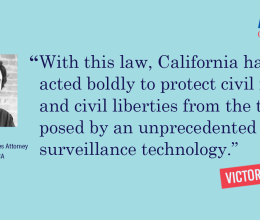What to do if you're stopped by the Police/Law Enforcement Officials
- Stay calm. Don’t run.
- Be in control of your words, body language, and emotions. Don’t get into an argument with the police. Never bad-mouth a police officer.
- Anything you say or do can be used against you. You have the right to remain silent.
- Keep your hands where the police can see them.
- Never touch a police officer.
- Don’t resist even if you believe you are innocent.
- If you complain at the scene or tell the police they’re wrong, do it in a non-confrontational way that will not intensify the situation. Write down everything you remember as soon as possible (badge #, patrol car #, names, etc.).
- If you are arrested, ask for a lawyer immediately.
- Try to find witnesses and get their names and phone numbers, language, and emotions.
- If you are injured, take photos of the injuries as quickly as you can. If possible, seek medical treatment, and ask for copies of your medical files.
We all recognize the need for effective law enforcement, but we should also understand our own rights and responsibilities — especially in our interactions with the police.
"Fourth Waiver" Rights
- If you are on parole, probation, pre-trial release, or supervised release, you may have agreed to waive many of your Fourth Amendment rights. If this is the case, the police may be able to search you, your belongings, and sometimes your house, without a warrant or your permission.
- If you are not a fourth waiver, that is, you do not have a search condition, you never have to consent to a search of yourself, your belongings, your car, or your house. Follow the advice elsewhere in this document.
- If you are merely in the company of a fourth waiver, you do not have to consent to a search of yourself.
IF you have a police encounter, you can PROTECT yourself.
- What you say to the police is always important. Everything you say can be used against you.
- You have the right not to speak. To exercise this right, you should tell the police, “I would like to remain silent.”
- You never have to consent to a search of yourself, your car or your house, or your belongings, unless you are a fourth waiver. If you do consent to a search, it can affect your rights later in court.
- If the police say they have a search warrant, ask to see it. If they don’t have one, say, “I don’t consent to this search". Police cannot arrest you simply for refusing to consent to a search. This may not stop the search from happening, but it will protect your rights if you have to go to court.
- Do not interfere with or obstruct the police. You can be arrested for it.
IF you are stopped and/or questioned...
- Police may stop and briefly detain you only if there is reasonable suspicion that you committed a crime, or are committing a crime, or are about to commit a crime.
- You should ask, “Am I under arrest? Am I free to leave?”
- Give the information that is on your driver’s license. If you don’t, you may be arrested, even though that arrest may be illegal.
- If police reasonably suspect you pose a danger to them or to others, they may pat down your outer clothing. Do not physically resist, but do say, “I do not consent to this search.”
- If an officer asks you to empty your pockets, do it. Say, “I do not consent to this search.” If the officer reaches into your bag or pockets, this is a search.
- Do not bad-mouth a police officer or run away, even if you believe what is happening is unfair. This could lead to your arrest.
IF you are stopped in your car...
- Upon request, show the police officer your driver’s license, registration, and proof of insurance.
- If you are suspected of drunk driving, you will be asked to take a breath-alcohol and coordination test. If you fail the tests, or if you refuse to take them, you will be arrested, your license may be suspended, and your car may be taken away.
- If you are arrested, your car will be subject to search.
IF you are arrested or taken to the police station...
- You have the right to remain silent and talk to a lawyer before you talk to the police. Don’t tell the police anything except your name and address. Clearly state, and repeat if necessary, “I want to talk to a lawyer.”
- Don’t give any explanations, excuses, or stories. You can make your defense later, in court, based on what you and your lawyer decide is best.
Attorneys & Advocates
- If you have a lawyer, ask to see them immediately. If you can’t afford an attorney, you have the right to a free one once your case goes to court. You can ask the police how to contact the lawyer. Don’t say anything to the police without speaking to a lawyer first.
- Within a reasonable time after your arrest or booking, you should ask the police to contact a family member or friend. If you are permitted to make a phone call, anything you say at the precinct may be recorded or listened to. NEVER talk about the facts of your case over the phone.
- Do not make any decisions about your case or sign any statements until you have talked with a lawyer.

